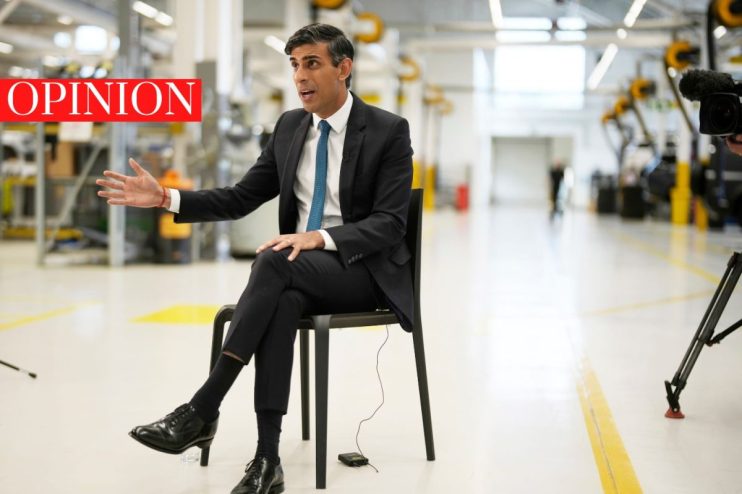Let’s be honest, we’re going to kill our efforts to tempt in more tech investment

Rishi Sunak’s efforts to make Britain a science superpower thriving with tech investment could all be for nought with new digital markets rules, writes Matthew Lesh.
Rishi Sunak has repeatedly emphasised the need to make the UK a “science and technology superpower”. This aligns closely with Sunak’s Silicon Valley vibes, which over the summer extended to participating in a Taylor Swift-themed spin class in LA.
But when it comes to the new digital markets regime, Rishi is at serious risk of turning a love story into a shaking off of tech investment. The Digital Markets and Competition Bill, currently before parliament, gives the Competition and Markets Authority (CMA) expansive new powers to intervene in digital markets in the name of increasing competition.
The CMA will have the remit to decide which companies are in the regime’s scope, spanning everything from search engines and smartphone software to online shopping, advertising, entertainment, travel and news. The CMA will then be able to design bespoke interventions for each entity without needing to prove that consumers will benefit.
The potential consequences are vast. The easiest way for companies to avoid falling foul of the new regime and incurring hefty fines (10 per cent of global revenue) will be to stop developing new products in the UK or delay new features for British users.
For example, the CMA can impose a requirement against a digital platform bolstering their “strategic significance”. But many investments and innovations – like Meta’s launch of Threads as a rival to Twitter/X – benefit users and increase competition while potentially bolstering strategic significance. Meta reportedly hasn’t launched Threads in the EU because of concerns over their equivalent digital competition regime.
Worryingly, the CMA’s decisions will only be reviewable under the “judicial review” standard, based on whether they followed the correct process rather than the underlying merits of any decision. Sir Jonathan Jones, former head of the Government Legal Service, and Verity Egerton-Doyle warn this means turning the CMA into “legislator, investigator and executioner”. This is bad for everyone, including the smaller firms challenging “Big Tech” dominance who won’t be able to review disagreeable decisions.
The government’s retort to these concerns is that the new regulator will be proportional and consultative. This blind faith in a regulator that doesn’t yet exist is totally at odds with everything ministers have said about reigning in Quango power. Conservative politicians are ringing alarm bells. Former justice secretary Sir Robert Buckland MP warns that the CMA will be “given free rein to make unchallengeable decisions that affect large swathes of the economy” while Richard Fuller MP says the powers are “too broad, too ill-defined and too restrictive to challenge”.
The CMA has already created bad blood with investors by rejecting Microsoft’s acquisition of Activision Blizzard. In response, Microsoft’s Brad Smith said “There’s a clear message here — the European Union is a more attractive place to start a business than the United Kingdom.” The decision is now under review after the likes of the EU, and China, Japan approved the deal.
If the issues with the Bill aren’t addressed, the next time Rishi is in California he might just be signing, in the immortal words of Taylor Swift, “I don’t wanna miss you like this. Come back, be here.”